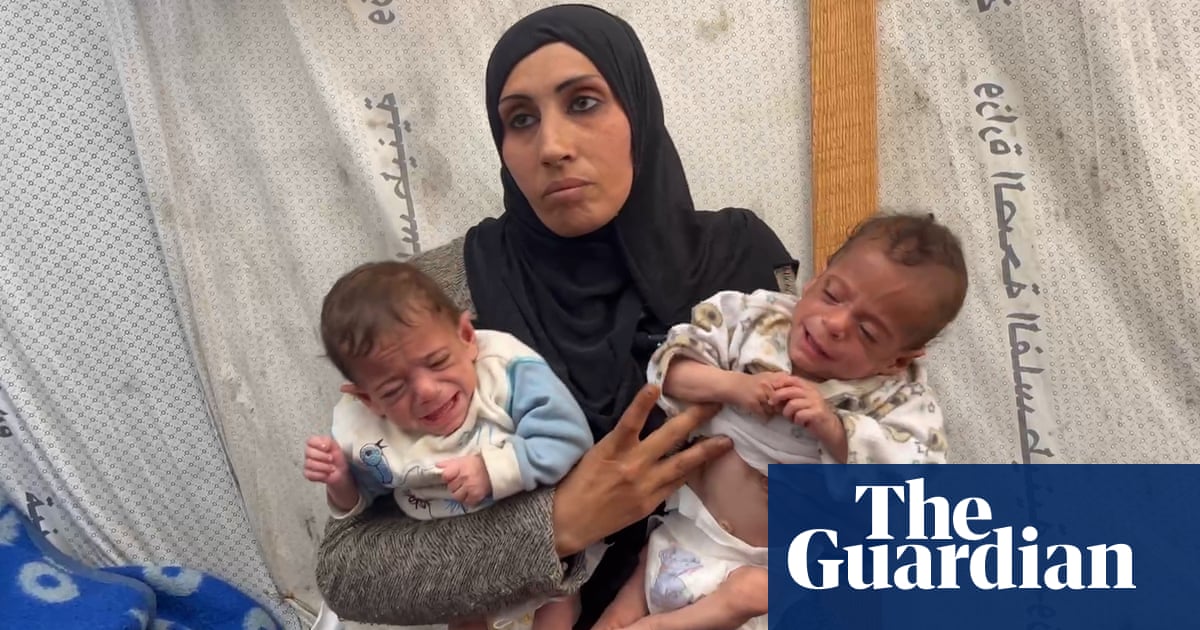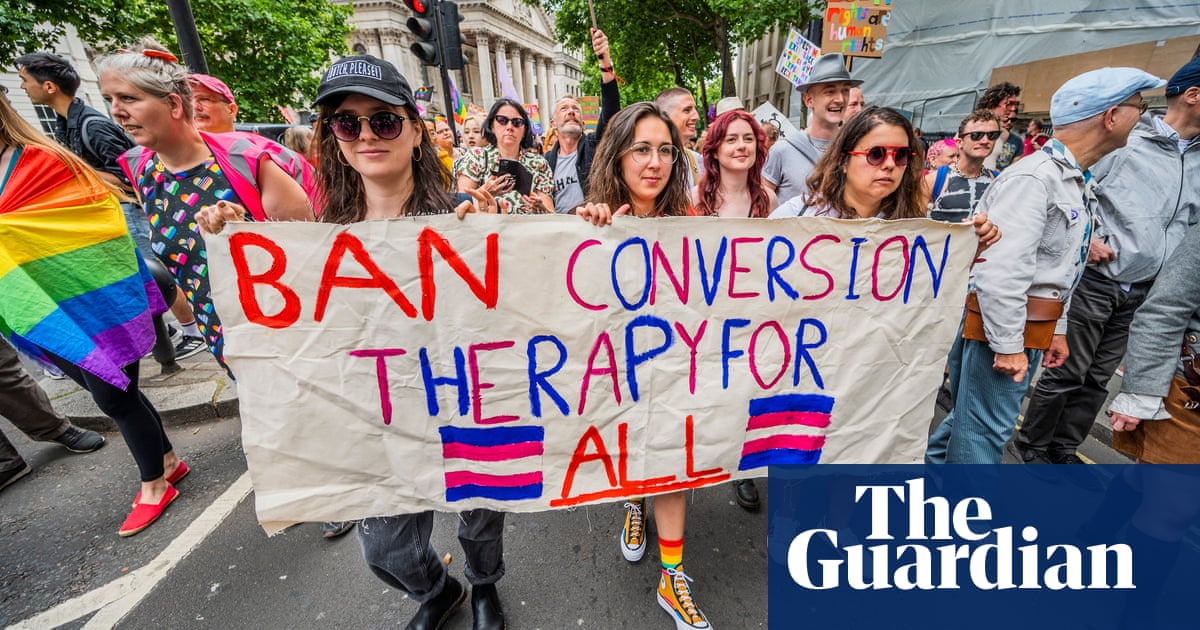
or the past four days, Nangyalai, a 42-year-old minicab driver from south London, has been queueing with his wife and 11-month-old baby outside the Baron hotel on the edge of Kabul airport, trying to get close enough to the entrance gate to show guards his British passport.
There is a sign by the gate stating “British passport holders only”. Inside the hotel, officials are working to grant evacuation visas for thousands of UK nationals and Afghan citizens who have worked for British organisations. Diplomatic staff say they are “processing hundreds every hour”, but there is a growing sense of despair among the crowds who have been waiting outside since the start of the week – and tensions are rising.
Speaking by phone from outside the airport, Nangyalai (whose identity we are not revealing) said his repeated attempts to attract the attention of UK officials had failed. With reports suggesting military airlifts could end within 36 hours, he was beginning to lose hope. Others described giving up and going home, concerned that the crowded streets were increasingly unsafe since the Taliban said they would prevent Afghans from leaving the country they now control.
People queue near "British passport holders" sign
A throng of people at the rear gate of the Baron hotel. Photograph: Rock@AFG @KhybarMohammad/Twitter
The minicab driver witnessed several in the queue being beaten with sticks and cables when they tried to get close to the hotel entrance. “It’s a very tense situation,” he said. Several people expressed frustration that officials were not sending vehicles to collect the remaining UK nationals. According to British defence sources, local Kabul private security teams are charging up to $7,500 (£5,500) for safe passage to the airport, with much of the fee being used to pay off the Taliban on the way.
Advertisement
“Yesterday a group of about 40 of us stood in a circle and tried to get in touch with the Foreign Office to ask them to come and get us. The US embassy is sending buses to collect its citizens and take them into the airport. The British aren’t doing that,” Nangyalai said. “We tried calling, telling them we are stuck outside, that there is a barrier and then a gate. They say: ‘We can’t help you.’”
His growing alarm was echoed by others. One guard who protected the British embassy, employed by the security firm GardaWorld, spent most of Tuesday and Wednesday attempting to get to the hotel gate where he hoped to show an email confirming that he and his family had been cleared for emergency relocation to Britain.
He witnessed women and children being crushed in the crowd on Tuesday, when the gate was briefly opened and people surged forward. “I saw children falling down. I think one woman and one child died. I cannot describe such a situation. People brought their bodies outside,” he said, suddenly overcome with distress and unable to speak.
Others in the queue sustained injuries during a small stampede. One person described attempting to shield the bodies of the dead from his children’s view.
Despite a firm commitment from the Foreign Office that all 125 of the GardaWorld British embassy guards would be helped, only around five had by Wednesday received emails telling them to collect visas from the hotel.
The guard who did receive this official clearance was uncertain about whether he would make another attempt to make it to the hotel on Thursday. “There are many Taliban checkpoints on the way to the airport. These people are not human, they are animals. If we try to go, they will kill us,” he said. He was hoping that GardaWorld or the British officials would organise a bus before the evacuation process ends.
Taliban fighter with AK47 shouting at driver of car
Fear of Taliban checkpoints prevents many Afghans from travelling to the hotel, even if they have been told they can collect a British visa there. Photograph: Marcus Yam/LOS ANGELES TIMES/REX/Shutterstock
A government minister in the recently toppled Afghan regime who is a former scholar on the Foreign Office-sponsored Chevening scheme said he felt it was now too dangerous to try to get to the airport independently, despite having confirmation he was eligible for relocation. He too was dismayed that British officials were not helping with transportation.
“We thought we would try one more time, early this morning,” he said on Wednesday. “After four hours, I managed to see someone from the British military, and he told me to go to another gate. I couldn’t do that; it would have taken another day to queue there, so we went home,” he said. His children were prepared, each with a backpack ready to leave, but he was uncertain about whether he would try again. “There are four Taliban checkpoints you have to cross to get there. Each time I put my life at risk.”
A former soldier who is helping a family with asylum papers said they also made it within 100 metres of the Baron hotel but could not get into the compound. “This family are known about at the highest diplomatic level, but there is a disconnect between London and on the ground at the Baron,” he said.
Several British Nato employees told of their efforts to help former Afghan colleagues. “They have their paperwork and are being advised to stay in situ and that they will be picked up – but nobody is coming, nobody is answering calls or emails. Another group were told to go to a secret location for a pickup and seven hours later they were still waiting.” Another Nato employee said a former colleague had been beaten with rifle butts by the Taliban as he tried to enter the airport.
The crowds at the hotel gates represent only a portion of those trying to flee. About 200 workers who were guarding World Bank projects for the British security company G4S until 17 August sent a desperate plea on Wednesday to the British government asking it to intervene and help them escape Kabul.
The Foreign Office said there was no prioritisation of one group over another in the eligibility criteria for the evacuation flights, adding that staff were working tirelessly to organise the evacuation of British nationals, Afghan staff and vulnerable individuals, and that more than 10,200 people had been helped to leave Afghanistan since 13 August.












